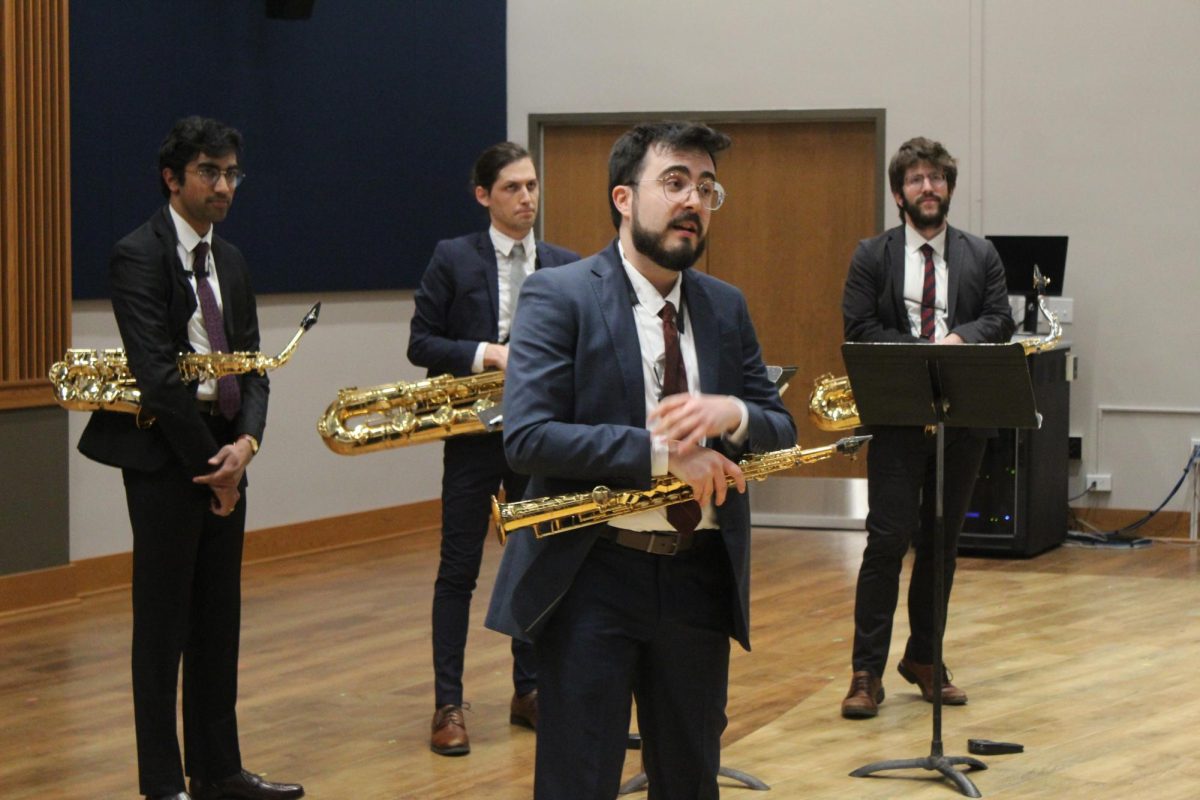Bearded and in shadow, his face was the least of the audience’s concerns as they listened to the mellow voice of poetry sooth them under the poor lighting and damp coffee scent of Roz Toxx last Wednesday. Joshua Clover serenaded the audience with revolutionary poetry and successfully brought the calm back to 2016.
Clover is not a calm man in his soul. In 2012, Clover was facing prison time with a group of students for staging a protest that led to the shutdown of a campus bank on the University of California Davis campus. According to an article on poetryfoundation.org, each protester was charged with obstructing movement in a public place and conspiracy. Clover, along with other protesters, was released with no further charges, but continues to fight through his poetry.
While Clover’s Wednesday night was spent in a calm setting, his words were less than peaceful. The second part of his poem “The Fire Sermon” opened by saying, “There will be a revolution, or there will not.”
Following this, the poem elaborates on what the world could look like depending on whether or not riots and protests exist, but it goes even deeper to question whether or not riots and protests are worth having.
His passion towards this cause sparked his most recent book, Riot. Strike. Riot: The New Era of Uprisings. The Chicago Tribune describes the book’s goal as a way “to clarify our notions of riot and strike; to explain why the riot has returned in its present form; and to speculate about the future of resistance and struggle.”
Riot. Strike. Riot discusses the same ideas of what riot is and what riot does to a country like this. Clover spent Wednesday night reading poetry, but his Thursday night was spent in Wallenberg Hall discussing his book. Clover was unafraid to be vulnerable in this meeting as well as the poetry reading, but he was open in a different way. Clover mentioned his disdain for Capitalism and the idea of the White House in flames.
Before he closed his reading at Roz Toxx, he introduced his last poem as one for the upcoming election.
“I made it deep into the election season without writing any poems in relation to the election season,” Clover said, “But eventually, my good luck streak ended.” Clover preceded his poem by implying his frustration with the election thus far, yet when reading his poem, “I Want to Read at the White House.”
“I want to read poems at the White House,” Clover’s poem says, “And then like any house reading, we will all clean up together.” Clover’s demeanor while speaking is that of a clear activist, yet his nature while reading poetry, no matter the words, is carefully paced. “All that rubble. All those ashes,” Clover reads, “These are my conditions.”
Categories:
The poet and the protest: One in the same
October 20, 2016
0
More to Discover








































































































